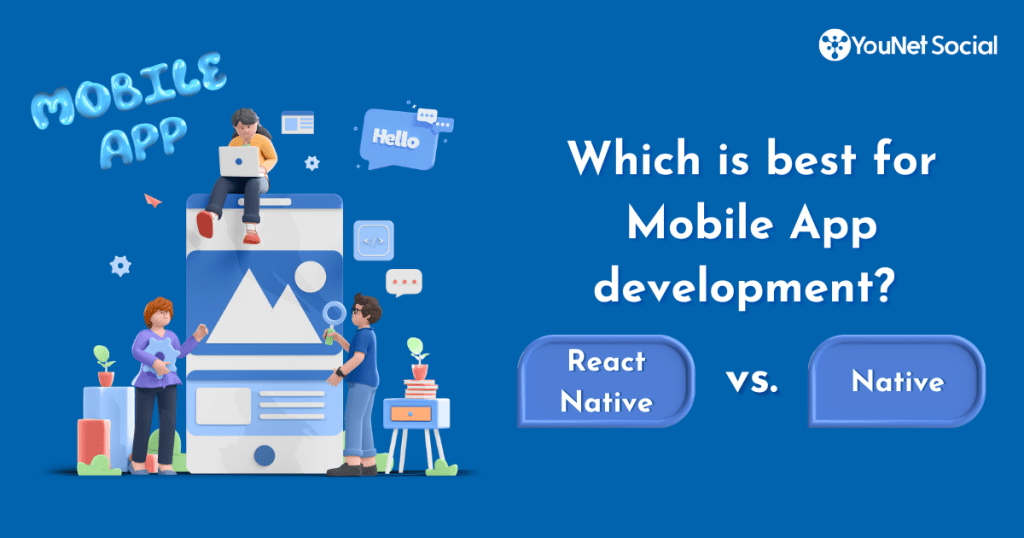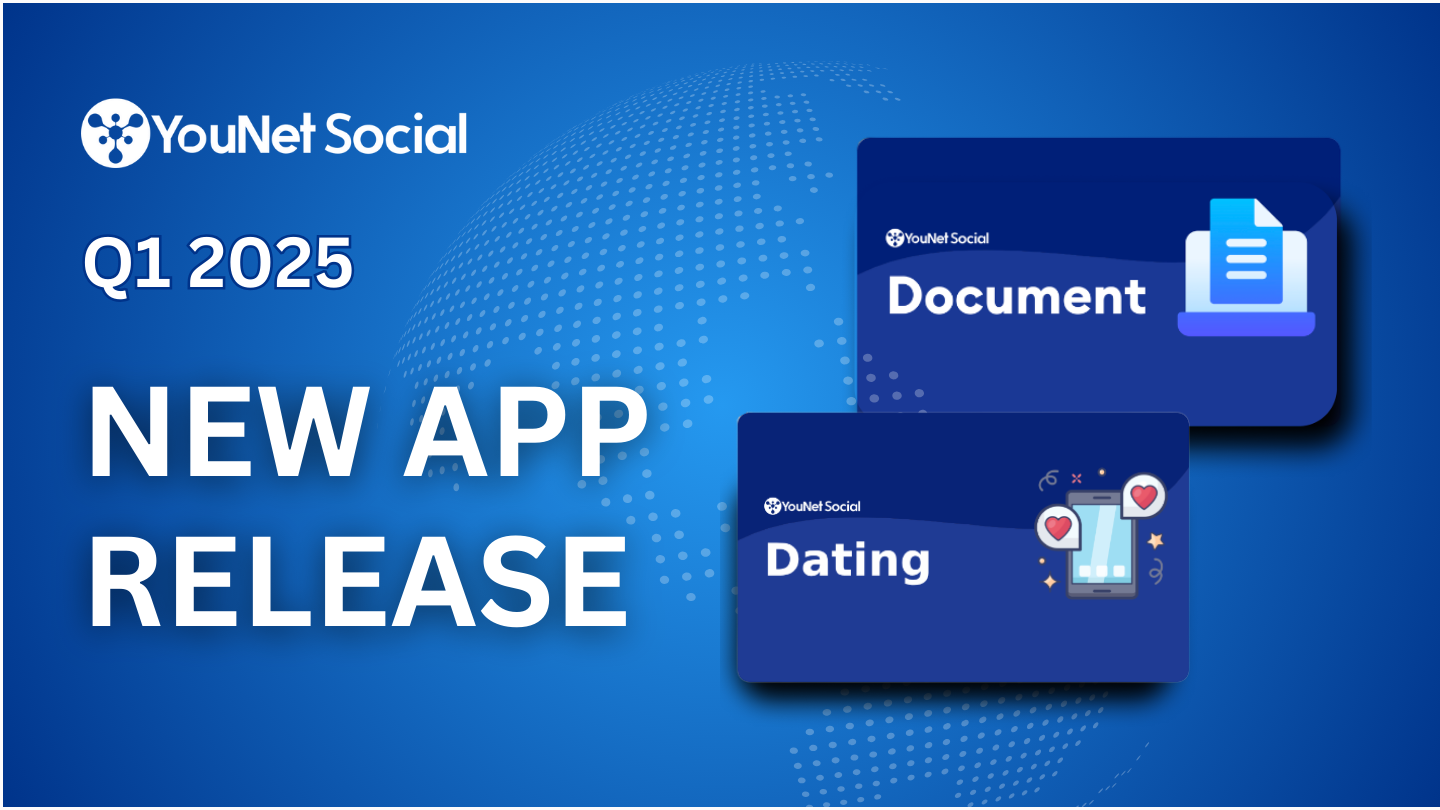

Mobile app development has become a cornerstone of our modern digital landscape, enabling businesses and individuals to reach a global audience with their products and services. When building mobile apps, developers often face a critical decision: whether to choose React Native or pursue Native app development. It depends on the modules of the businesses and the requirements to run their projects. This article will dive deep into these two approaches and explore the factors that can help you choose your next project.
What is React Native app development?
React Native, a framework developed by Facebook, leverages the power of JavaScript and the popular React library to deliver a unique approach to mobile app development. At its core, React Native’s philosophy revolves around ‘learn once, write anywhere.’ This means developers can use their JavaScript skills to create apps seamlessly on iOS and Android platforms. The real magic lies in its ability to utilize a single codebase, minimizing the effort required to maintain two separate codebases for different platforms.
What is Native app development?
Native app development, on the other hand, focuses on crafting applications tailored specifically for each platform: iOS and Android. This approach uses platform-specific programming languages – Swift or Objective-C for iOS and Kotlin or Java for Android – to create apps tightly integrated with the platform’s APIs and hardware features. Direct access to device capabilities leads to superior performance and a seamless user experience.
Factors to consider when choosing a Native or React Native mobile app development
Choosing between React Native and Native development requires businesses thoroughly examine various critical factors.
Development Languages
React Native simplifies development using JavaScript, a familiar language to many web developers. In contrast, Native development demands proficiency in platform-specific languages such as iOS and Android have different types of programming languages, i.e., Kotlin, Java, or Swift.
Despite JavaScript being easy to learn, it still has poor documentation and various flaws, while the languages, on the other side, have plentiful sources and regulations, even though it takes time to get comfortable with them.
UX & UI Experience
React Native strives to balance consistency and customizability regarding UX and UI. Since it uses a single codebase to target both iOS and Android platforms, React Native apps tend to have a consistent look and feel across devices. This consistency can be advantageous for maintaining brand identity and user familiarity. Moreover, UI components are reusable, promoting consistent design and saving development time.
Native app development excels in delivering tailored UX and UI by utilizing platform-specific design guidelines and device capabilities. This approach ensures that the app feels like an integral part of the platform, providing a premium user experience.
Performance


React Native can provide satisfactory performance for apps that do not heavily rely on complex animations, graphics, or intense computational tasks. It is well-suited for smaller to medium-sized applications and situations where development speed and cross-platform compatibility are more critical than top-tier performance.
Choose native development for apps requiring exceptional performance, like graphically intensive games, video editing, or apps interacting extensively with device hardware. Native development shines when delivering a seamless and responsive user experience is paramount.
Scalability
React Native offers scalability thanks to its code reusability and efficient development cycle. However, as apps grow in complexity, challenges can emerge. It can be a good choice for more minor to medium-sized apps, startups, and projects where a quicker time-to-market is essential. It is suitable when you anticipate frequent updates and need a consistent presence across platforms. The React Native community also offers numerous third-party libraries and plugins that can enhance app functionality and scalability.
The native app is a primary concern, especially for apps expected to experience rapid growth or those requiring intricate performance optimizations. This app development provides a solid foundation for building scalable applications, especially when handling increased user load and evolving feature requirements.
App Security
React Native inherits security features from the underlying native platforms but also introduces potential risks due to its reliance on JavaScript and third-party components. The vulnerabilities can compromise security if not regularly updated.
In contrast, Native app development offers more direct control over security measures and can take full advantage of platform-specific security features. It is particularly well-suited for mobile apps that require stringent security compliance.
Popular React Native Mobile apps
Many of today’s applications are in the concept of React Native. Some of the most recognizable names in the tech industry have embraced this platform to deliver seamless user experiences across iOS and Android platforms such as Facebook, Instagram, SoundCloud, Bloomberg, etc.


One of the pioneers of React Native adoption, Facebook utilizes the framework for its flagship app. React Native’s efficiency allowed Facebook to maintain a consistent user interface across platforms while rapidly iterating on new features. The complexities of a massive, global user base marked the framework as a credible solution for large-scale applications.
Instagram, a subsidiary of Facebook, followed suit by leveraging React Native. The application’s focus on visual content and user engagement required a responsive and smooth interface. React Native’s performance optimization allowed Instagram to maintain its image-centric experience while ensuring consistent performance across devices, thus enhancing user engagement and retention.
SoundCloud
SoundCloud, the music streaming platform, embraced React Native to balance artistic innovation and user experience. With React Native’s code reusability and platform-specific components, SoundCloud optimized its app’s performance without sacrificing the creative freedom offered to its community of artists and listeners.
Netflix
As a frontrunner in the entertainment industry, Netflix is renowned for its user-centric approach. To maintain consistency and efficiency across its iOS and Android mobile apps, Netflix turned to React Native. The decision shows the framework’s ability to expedite development cycles while retaining high visual fidelity and performance.
Why do start-ups prefer React Native mobile app development?
As newbies in the market, start-ups player may face many challenges at the beginning, so a React Native app development will be an ideal solution for them.
Firstly, targeting audiences in which mobile platforms are complex to start-ups and a seamless transition between iOS and Android is an easy way to apply their projects that will fit all the users.
Secondly, cost efficiency is one of the initial considerations for start-ups. And developing a React Native application costs less than a Native one, so start-ups can utilize the fund for other projects or even land in the mobile industry with a small budget.
Read more: Low-Code Development
Thirdly, start-ups are often racing against time to introduce their product to the market quickly. React Native’s code reusability allows developers to write a single codebase. This drastically reduces development time compared to building separate native apps for each platform.
Fourthly, start-ups often experiment with their branding and user interface design. React Native’s components can be customized to match specific design requirements, allowing creativity while maintaining a consistent user experience.
Fifthly, while React Native offers cross-platform components, it also allows the integration of platform-specific native modules. This means that if a start-up requires a unique feature or performance optimization, developers can access and use native APIs.
Conclusion
As the mobile app landscape evolves, choosing between React Native and Native development remains crucial. Each approach has strengths and weaknesses, making it suited for different projects. You can make an informed decision by understanding your project’s requirements, timeline, and the user experience you aim to deliver. Whether you opt for the rapid development of React Native or Native performance optimization, your choice will shape the success of your app in the competitive mobile market.
Are you eager to discover how YouNet Social can accelerate the time to market for your upcoming software product? Contact us now to initiate a conversation about your business requirements and goals.




